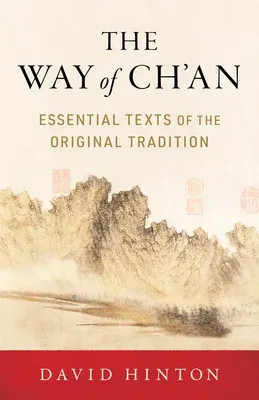This sweeping collection of new translations paints a brilliant
picture of the development of Ch'an (Zen) Buddhism, China's most radical
philosophical and meditative tradition.
In this landmark anthology of some two dozen translations, celebrated
translator David Hinton shows how Ch'an (Japanese: Zen)--too long
considered a perplexing school of Chinese Buddhism--was in truth a
Buddhist-inflected form of Taoism, China's native system of spiritual
philosophy. The texts in The Way of Ch'an build from seminal Taoism
through the "Dark-Enigma Learning" literature and on to the most
important pieces from all stages of the classical Ch'an tradition.
Guided by Hinton's accessible introductions, readers will encounter
texts and authors including:
- I Ching (c. 12th century BCE)
- Lao Tzu (c. 6th century BCE
- Bodhidharma (active c. 500-550 CE)
- Sixth Patriarch Prajna-Able (Hui Neng, 638-713)
- Cold Mountain (Han Shan: c. 8th-9th centuries)
- Yellow-Bitterroot Mountain (Huang Po, d. 850)
- Blue-Cliff Record (c. 1040)
Through this steadily deepening and transformative reading experience,
readers will see the profound and intricate connections between native
Chinese philosophy, Taoism, and Ch'an. Contemporary Zen students and
practitioners will never see their tradition in the same way again.

